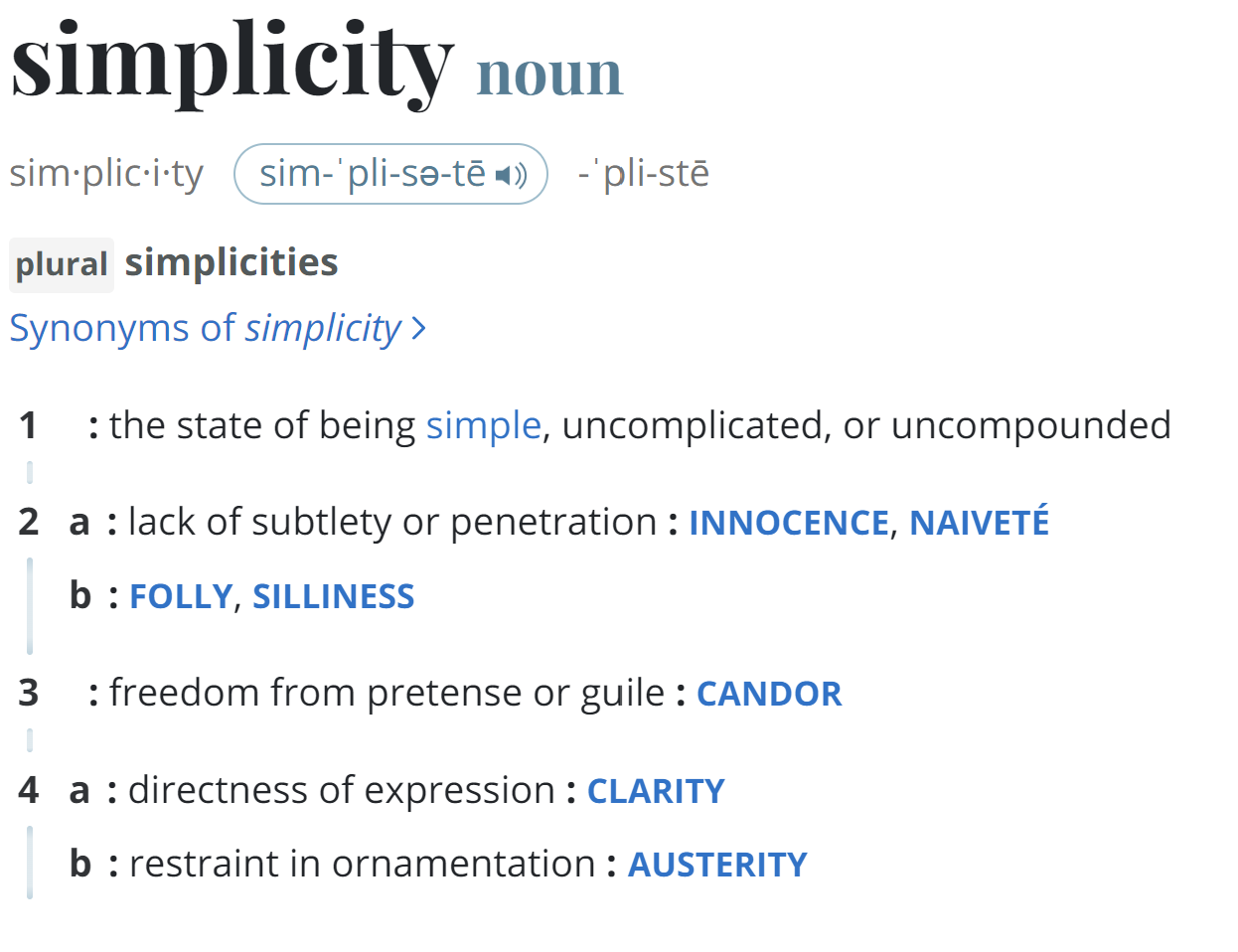Simplicity is very hard to build. I believe people often confuse the following:
Simple = lazy, suboptimal, innocent
Complex = sophisticated, optimal
They are not wrong, but they are latching onto the least useful definition of simplicity. There’s another side of the "simplicity" coin that people often miss. For example, let's look at the definition of the word in the Merriam-Webster dictionary:
We tend to think of simplicity as a lack of subtlety or depth, when in reality we should view it more as a directness of expression. It doesn’t help that our interaction with the word "simple" often comes through adjectives like simple-minded, simple-looking, and simple-witted, all of which carry a certain negative connotation.
When you lead and manage people, directness of expression (simplicity) is absolutely essential.
Simplicity is almost an art in a world that is inherently complex. Building or communicating something with simplicity requires time and significant effort.
Simplicity is directly tied to clear communication. When deciding between simple and complex, always choose simple. At DareData, we've been striving for this, but it is increasingly difficult as we grow—the tendency is always to add layers of abstraction to explain a point of view more thoroughly. This often backfires, as it allows room for interpretation and makes your vision progressively foggier.
There are a couple of techniques we try to use at the company (and we are continuously working on them) to master simplicity:
When you write a two sentence paragraph, try to write it in one.
Avoid written run-ons (this is something my friend
pointed out in the portuguese language and that I’ve taken into consideration. We tend to write really long sentences).Casually ask people what they think about a specific term. For example, if you set a framework/idea at the company, randomnly ask people what they think about it.
Never assume that people don’t understand a concept because they are lazy or didn’t search for it. It’s not their responsibility to seek out all the important definitions within the company. It’s your job to make it effortless for them to understand and consider these definitions.
With my technical background, I always find new opportunities to match the technical knowledge with ideas on business and management. You may not know but at DareData, we specialize in Machine Learning and AI. One particularly fascinating area of study ML focuses on is dimensionality reduction. This technique aims to reduce the amount of data while preserving its most valuable features. I find this concept incredibly interesting because it allows us to work more efficiently by simplifying data without losing important information.
See the parallel with clear communication? simplifying data without losing important information is how your communication should go.
I’m really becoming obssessed with simplicity. As the team and company grows, simplicity has been extremely important in communicating to the entire team - and it’s extremely hard. It requires 10 times more work than being overly complex.
One of the greatest minds to study on simplicity is Steve Jobs - although I’m not a hardcore fanboy of Steve, there’s absolutely no questioning when it comes to his view of simplicity - and the results are clear, he put everyone using a product that no one knew they needed. And this worked from the least to the most sophisticated customer.
Here’s a great take of Steve on simplicity:



I'm flabbergasted that you didn't include my first hack of writing better in Portuguese: when see the word "namely", just deleted it - and everything that came before it.
Wise words!